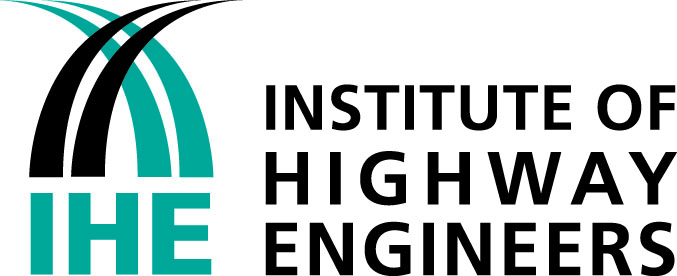Transport Planning: Policy and Principles
Transport Engineering and Planning
School of Science, Engineering and Environment
Full-time
Part-time
One year
Three year
September 2024
In a nutshell
New transportation technologies and global economics are influencing the way we approach planning and delivering transport systems. Learn to take the lead in shaping next-generation mobility with our accredited MSc Transport Engineering and Planning postgraduate degree.
Delivered for over fifty years, and shaped by industry and real-world relevance, our course is recognised as a strong postgraduate qualification for students and professionals interested in the management, engineering and planning of transport infrastructure. You will build specialist knowledge in topics such as transport policy and planning, traffic analysis, forecasting and infrastructure design.
Available with full-time and part-time study pathways, the course is designed to support your progression in developing your career with a transport consultancy, a local or central government planning department, or a passenger transport authority. Our part-time study pathway is designed to fit around your existing commitments or be combined with a graduate training programme.
International applicant? Please check international intakes for the latest information and application dates.
Start your MSc Transport Engineering and Planning study journey
Register for our next Open Day where you can learn more about the course, tour our new engineering facilities and meet the tutors
You will:
- Receive training on a wide range of transport specific software relevant to your future career
- Learn to develop solutions to problems that align with the aims of transport and planning policy
- Benefit from strong, long-standing connections with transport industry partners across the UK and Europe
- Experience project teamwork which reflects the real-world transport sector working practice
- Explore how planning, engineering, environmental science and modelling work combine
students accepted
Course accreditations





This is for you if...
You are a graduate or professional keen to open up career opportunities where you can create transport and mobility to improve our everyday lives
You currently work in transport or built environment sectors, and want gain further knowledge for facilitate career progression
You are an engineering, geography, mathematics or science-related graduate looking to build specialist knowledge in transport delivery and planning
All about the course
Course delivery
Our MSc Transport Engineering and Planning degree course is delivered through four 30-credit modules and one 60-credit project module.
Flexibility is at the heart of our learning approach. You can choose to study this postgraduate course full-time or part-time on campus, with enrolment each September:
- As a full-time student, you will complete four 30-credit taught modules in each of the first two trimesters on campus. In your final trimester, you will complete a 60-credit research dissertation
- As a part-time student, you will complete one 30-credit module in each of the first four trimesters on campus. Across two additional trimesters, you will complete a 60-credit research dissertation
Learning experience
Delivered for over 50 years, our course will upskill and empower you to lead transport planning and delivery projects. Through our industry-focus, we invite speakers from major companies and employers to participate in course delivery, providing you with real-world case studies and projects.
Current course topics include transport planning, transport engineering and traffic engineering. You will also choose to study either transport forecasting or infrastructure design and analysis (if your first degree is Civil Engineering). You will also strengthen your research and analytical skills by completing a dissertation on a topic of your choice. Learn more about the current course modules in the section below.
Course team
The Transport Engineering and Planning postgraduate programme is delivered by an academic team with extensive industry experience and research connections.
Course leader: Dr. Saad Yousif
The aims of this module are
- a) to present the principles and methods involved in planning coherently for the main modes of transport;
- b) to demonstrate this through examination of case studies and computer models;
- c) to review the measures available to promote sustainable travel.
Transport Engineering: Principles and Methodologies
In this module, you will design and assess standard traffic surveys and apply statistical methods for analysing traffic data and interpreting results. You will also study issues underlying current practice in the basic design of transport infrastructure for a range of transport modes including cycles, motor vehicles, rail and mass transit systems.
Traffic Engineering: Analysis and Road Safety
This module will teach you to analyse problems and propose outline solutions relating to the management and control of traffic. Analytical studies apply both theoretical and practical models for capacity appraisal of links and junctions. A parallel programme of lectures has an emphasis on road safety objectives, incorporating practical safety investigations in the local road network.
MSc Dissertation
The dissertation module is to give you the opportunity to demonstrate scholarship and intellectual ability at an advanced level, working under the guidance of an academic supervisor, by conducting original research and analysis in a specific area of the Transport Engineering and Planning syllabus.
Choose to study one of the following options listed below:
Transport Planning: Forecasting and Appraisal
You will study the theory and practice underpinning the key components central to classical travel demand forecasting and more recent approaches using microsimulation. You will also gain a systematic understanding and critical awareness of the current and innovative methods used to appraise and evaluate transport schemes, with specific reference to economic, environmental and safety issues.
Transport Infrastructure Design and Analysis
Students with a civil engineering first degree may choose this module as an alternative to Transport Planning: Forecasting and Appraisal. This will allow more advanced studies in mainstream civil engineering in a transport context, including developing practical skills to undertake design and analysis of bridge structures (abutments, bearings, cables, beams, trusses and decks) and associated transport-related infrastructure with regard to structural form, materials and operational performance and to appraise the established methodologies.
Please note that it may not be possible to deliver the full list of options every year as this will depend on factors such as how many students choose a particular option. Exact modules may also vary in order to keep content current. When accepting your offer of a place to study on this programme, you should be aware that not all optional modules will be running each year. Your tutor will be able to advise you as to the available options on or before the start of the programme. Whilst the University tries to ensure that you are able to undertake your preferred options, it cannot guarantee this.
School of Science, Engineering and Environment
Rising to the challenge of a changing world, our postgraduate courses are designed to shape the next generation of urbanists, scientists, engineers, consultants and leaders.
Shaped by industry, and delivered by supportive programme teams, you can develop the skills to take your career potential further.
Leading the way
The University of Salford is at the forefront of developing AI to revolutionise transport.
Since 2019, the University has pioneered industry-focused research and industry focus through its acquisition of a NAVYA autonomous shuttle, and the creation of the Automotive and Autonomous Vehicle Technology (AAVT) Labs.
What about after uni?
EMPLOYMENT
Course graduates will be well-equipped to meet the challenges of the modern transport industry. Many of our alumni have progressed to pivotal appointments in transport schemes and roles at local and national organisations and government departments.
FURTHER STUDY
You might also choose to take your subject interest further with postgraduate research. The engineering research hub at Salford is home to PhD and research master’s opportunities in areas of structural engineering, transportation engineering, geotechnical engineering and hydraulics.
Explore our Doctoral School to learn more about research training, support and opportunities.
What you need to know
APPLICANT PROFILE
This course is recognised as a solid qualification for graduates and professionals interested in the management, engineering and planning of transport infrastructure.
ENGLISH LANGUAGE REQUIREMENTS
All of our courses are taught and assessed in English. If English is not your first language, you must meet our minimum English language entry requirements. An IELTS score of 6.0 (no element below 5.5) is proof of this, however we do accept a range of equivalent qualifications.
Read more about our English language requirements, including information about pathways that can help you gain entry on to our degree courses. If you do not have the English language requirements, you could take our Pre-Sessional English course.
INTERNATIONAL STUDENTS - ACADEMIC TECHNOLOGY APPROVAL SCHEME (ATAS)
International students are required by the Home Office and/or the Foreign and Commonwealth Office (FCO) to apply for an Academic Technology Approval Scheme (ATAS) Certificate before they begin their studies. You need to obtain an ATAS Certificate before you come to the UK to comply with Home Office regulations. Please refer to your offer conditions.
If you have a query relating to ATAS, please contact: Salford-ATAS@salford.ac.uk
INTERNATIONAL APPLICATIONS
Please check international intakes for the latest information and application dates.
COURSE ACCREDITATION
This degree is accredited by the Joint Board of Moderators (JBM) comprising of the Institution of Civil Engineers, Institution of Structural Engineers, Institute of Highway Engineers, the Chartered Institution of Highways and Transportation and the Permanent Way Institution on behalf of the Engineering Council as meeting the requirements for Further Learning for a Chartered Engineer (CEng) for candidates who have already acquired a partial CEng accredited undergraduate first degree.
It should be noted that candidates completing the MSc who hold an underpinning accredited IEng degree or a non-accredited bachelor degree will need to apply for an academic assessment to determine whether they will meet the educational base for CEng registration.
Visit www.jbm.org.uk for further information.
Undergraduate degree
A minimum 2:2 honours degree in an appropriate discipline, or equivalent.
A variety of first degrees are accepted, including engineering, science, geography and social science.
International student entry requirements
We accept qualifications from all around the world. Find your country to see a full list of entry requirements.
Accreditation of Prior Learning (APL)
We welcome applications from students who may not have formal/traditional entry criteria but who have relevant experience or the ability to pursue the course successfully.
The Accreditation of Prior Learning (APL) process could help you to make your work and life experience count. The APL process can be used for entry onto courses or to give you exemptions from parts of your course.
Two forms of APL may be used for entry: the Accreditation of Prior Certificated Learning (APCL) or the Accreditation of Prior Experiential Learning (APEL).
For more information or enquires about this scheme, please contact: AdmissionsSEE-PGT@salford.ac.uk
How much?
| Type of study | Year | Fees |
|---|---|---|
| Full-time home | 2024/25 | £9,990.00per year |
| Full-time international | 2024/25 | £16,380.00per year |
| Part-time | 2024/25 | £1,665 per 30 credits |
Additional costs
You should consider further costs which may include books, stationery, printing, binding and general subsistence on trips and visits.
Bursaries for UK home students
High-calibre UK applicants joining the full-time programme may be eligible to receive external bursaries funded by the sponsored by two external bodies. The Rees Jeffreys Road Fund worth about £10,000 and The Brian Large Fund worth about £7000) are designed to contribute to the fees and living costs.
For more details, please contact the Programme Leader, Dr Saad Yousif (s.yousif@salford.ac.uk).
International student scholarships
If you are a high-achieving international student, you may be eligible for one of our scholarships. Learn more about our latest international scholarships.


